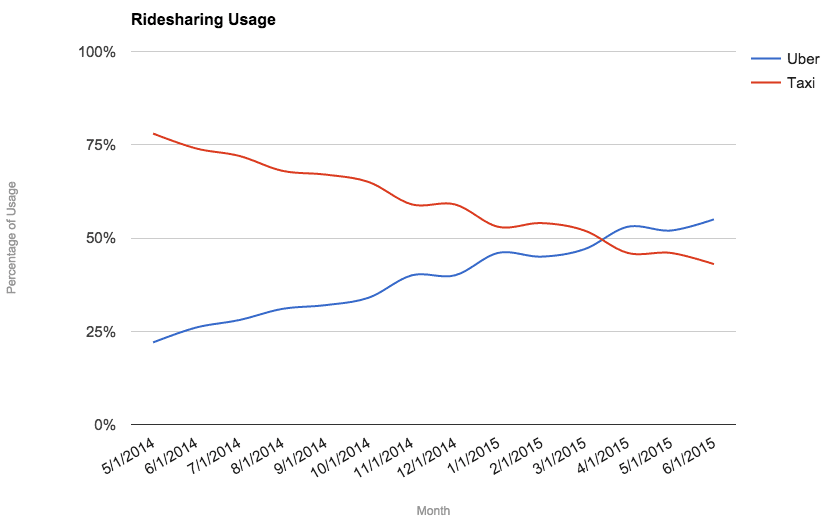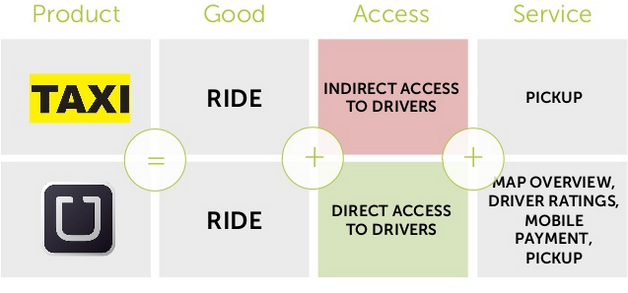Everything You Should Know About Your Safety in an Uber
Ride-sharing services are a great example of how the use of technology makes getting around even easier. Services like Lyft and Uber have quickly become as widespread as taxi services across America’s major cities, over 15 million Americans are expected to take advantage of this evolving technology (a 20% rise from last year). They also help to reduce intoxicated drivers getting behind the wheel and causing an accident. However, these tech-based services are based on real people entrusting their lives, safety and well-being to a complete stranger. Unlike taxi services, however, these companies are mainly remotely managed and may have different sets of rules to comply with than taxi services.
Uber, and services like it, are shining a long-awaited and desperately-needed light on the monopoly taxi companies have in most cities. Now, for example, its just as easy if not easier to get to and from the Philadelphia International Airport by calling a ridesharing services as opposed to utilizing a taxi.

Ride-sharing services are especially popular with young people who are more comfortable using smartphone apps to do things that traditionally required more effort in the past (ordering a pizza, depositing a check, etc.). The service is also popular with people who live in cities because of its fast, convenient setup; with the single push of a button, you can secure yourself a ride and be on your way within minutes. Uber and Lyft also take their payments directly through the app so that you’re not fussing with money when you reach your destination. Uber and Lyft have virtually eliminated all of the usual stressors of hailing a ride and created a way to reach a market that might not otherwise consider using a taxi service.

With power, though, comes responsibility, and mainstream media has no shortage of concerns about Uber’s. Whether it’s in terms of accident liability, incidents of violence against both passengers and drivers, or questions about vehicle damage, there are a number of gray areas involved with Uber that people who use its services should be aware of.
With power, though, comes responsibility, and mainstream media has no shortage of concerns about Uber’s. Whether it’s regarding accident liability, incidents of violence against both passengers and drivers, or questions about vehicle damage, there are some gray areas involved with Uber that people who use its services should be aware of.
Safety Concerns for Uber and Lyft Riders
Obviously an important concern that any consumer should have about using a ride-sharing service (or any taxi service) is safety.
What happens if you’re a passenger in an Uber or Lyft accident?
Accidents in a rideshare vehicle do happen. If you happen to be a passenger in an Uber or Lyft accident, it’s important to handle the situation just like you would if you were in an accident in a private car.
- Call 911 and seek medical attention, if necessary.
- Use your smartphone to document photos and video of the scene and damage.
- Collect as much information as you can including:
- Driver’s name, contact, and insurance information
- Any other involved parties’ names, contact, and insurance information
- Contact information for any witnesses to the accident
Uber and Lyft Assault Concerns for Riders
Assaults have become a major headline and concern for Uber in almost every city across the country. It is crucial for anyone who uses these services to be aware of the risks they take when they get into someone else’s vehicle. While Uber does conduct background checks, there are numerous examples of the company failing to act when customers raised concerns. Always be aware of your surroundings and in control while a passenger in Uber or Lyft. If you ever feel unsafe for any reason, get out of the vehicle.
Uber and Lyft Driver Safety Concerns
Uber Assault Concerns for Drivers
Riders aren’t the only people in Uber vehicles who need to be conscious of their safety. There have been reported cases of passengers assaulting Uber drivers. If you’re an Uber or Lyft driver, it would be wise to take measures to protect yourself. Keep the police and Uber/Lyft security on speed dial while you’re driving, and always be aware of your surroundings should the need to pull over arise.
Uber and Lyft Insurance Policies
How are Uber Drivers Insured Compared to Taxis?
Taxis in Pennsylvnia are managed by the Public Utility Commission, at least in terms of regulation, including the amount of insurance they have to provide passengers. That amount is minimal: $5,000 in medical coverage and $15,000 in liability coverage. Your own coverage is primary, however. If you are involved in an accident while riding in a taxi, the taxi company’s insurance is therefore only minimally exposed. An Uber, Lyft, or other ride-sharing service is considered a private car service and therefore is not controlled by the Public Utility Commission. Again, the primary coverage is your own auto insurance coverage. Without your own coverage, you are covered by your Uber driver’s insurance policy, and by the Uber company’s insurance coverage.
Keep this in mind when purchasing your car insurance. Your policy should have plenty of Uninsured and Underinsured Motorist Coverage (UM and UIM). This covers you in the event that the other driver, whether it is your Uber driver, taxi driver, or the other driver involved in your accident, does not provide sufficient coverage. If you are going to get in someone else’s car, it’s important to make sure that you have adequate coverage, because the driver may not.
This becomes important because Uber and Lyft provide its drivers with three different levels of liability coverage, depending on whether they are driving to pick up the rider (Period Two) or have a rider in their vehicle (Period Three), as recently mandated by Pennsylvania Law.
During Period One:
- If an Uber or Lyft driver is not logged into the app, the driver’s own personal liability coverage applies.
During Period Two, Uber/Lyft provide:
- $50,000 coverage for bodily injury per person, with a maximum of $100,000 per accident where more than one person is injured (applicable if the driver is waiting for the app to connect them with a customer); $25,000 coverage for property damage per accident and $5,000 in medical benefits.
During Period Three, Uber/Lyft provide:
- $50,000 per person and $100,000 per accident (where more than one person was injured) for bodily injury and property damage coverage for accidents where the driver is in route AND where the driver has a customer in his/her car, and $25,000 in medical benefits for passengers or pedestrians.
Are riders protected in an Uber or Lyft accident?
Uber claims to have a million dollar liability insurance policy per accident, but Uber is not statutorily mandated to carry that much coverage. In reality, you may end up being at the mercy of your own auto insurance company if an accident happens while you’re riding in an Uber or Lyft vehicle, at least for some of your damages. For this reason (and a myriad of other reasons), you should make sure you are investing in a full-tort insurance policy, and have sufficient medical coverage on your auto policy as well as UM and UIM (uninsured and underinsured motorist coverage).
Uber/Lyft vs. Septa
The popularity of ride-sharing apps like Uber or Lyft has caused the ridership of Septa to decrease mainly due to the ease of use of calling a ride via your smartphone. However, that’s not the only factor commuters should keep in mind when deciding between public transportation or a ride-sharing service. Check out our recent blog post for more information on making an informed decision when considering Septa or Uber/Lyft.
Uber and Lyft in Philadelphia
With so many Uber and Lyft vehicles on the road and so many rides being taken every day, there are bound to be incidents like the ones we’ve mentioned. These things can happen anywhere, including our city. You can never be too careful when using a ride-sharing service, nor is there such a thing as taking too many safety precautions.
Attorney Stuart Carpey handles Uber and Lyft accidents. If you’ve been the victim of an Uber or Lyft-related accident or assault, contact us for a free consultation.

